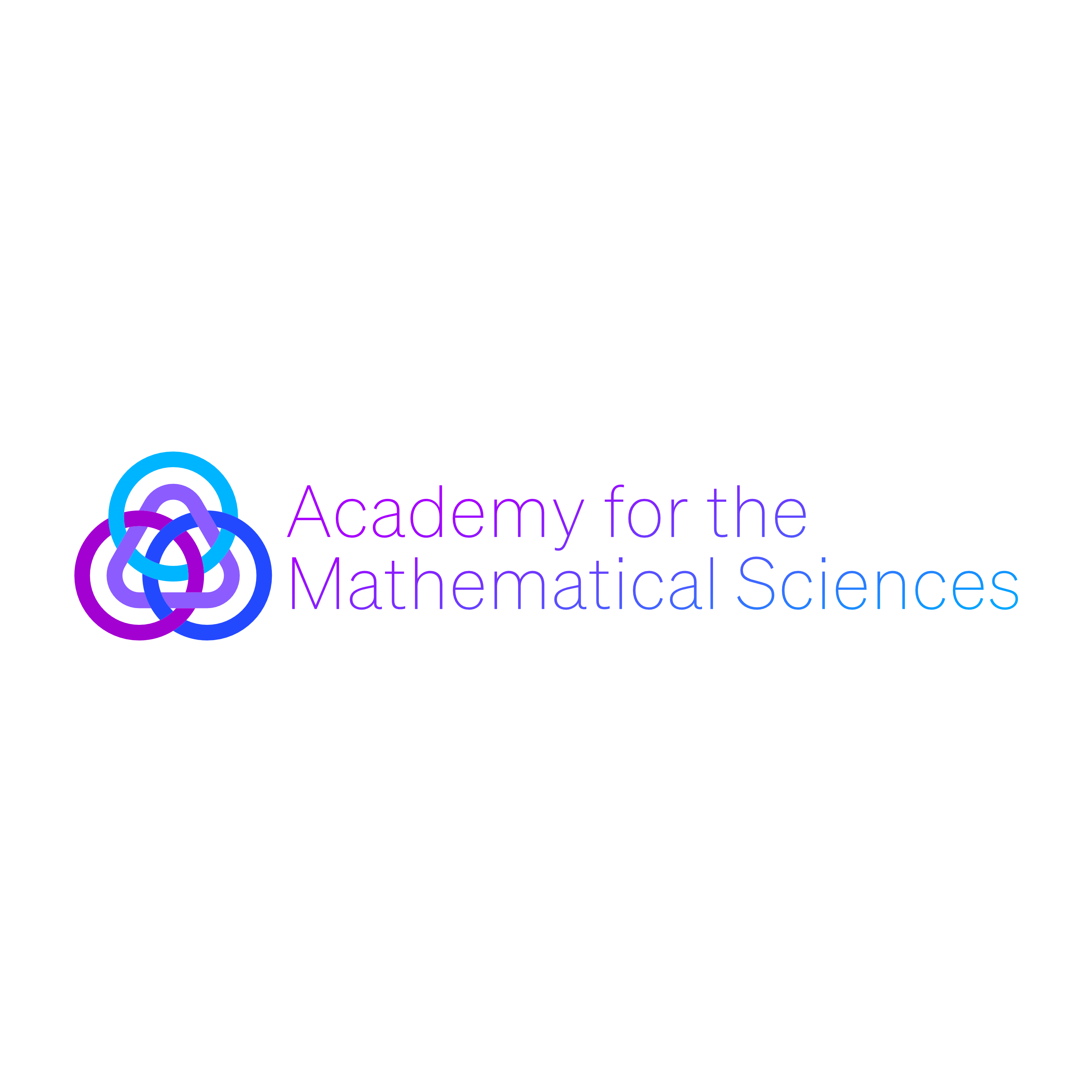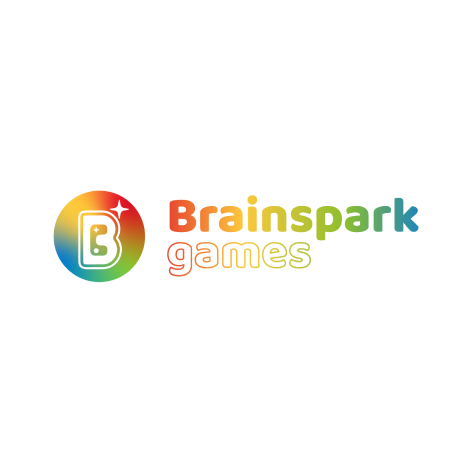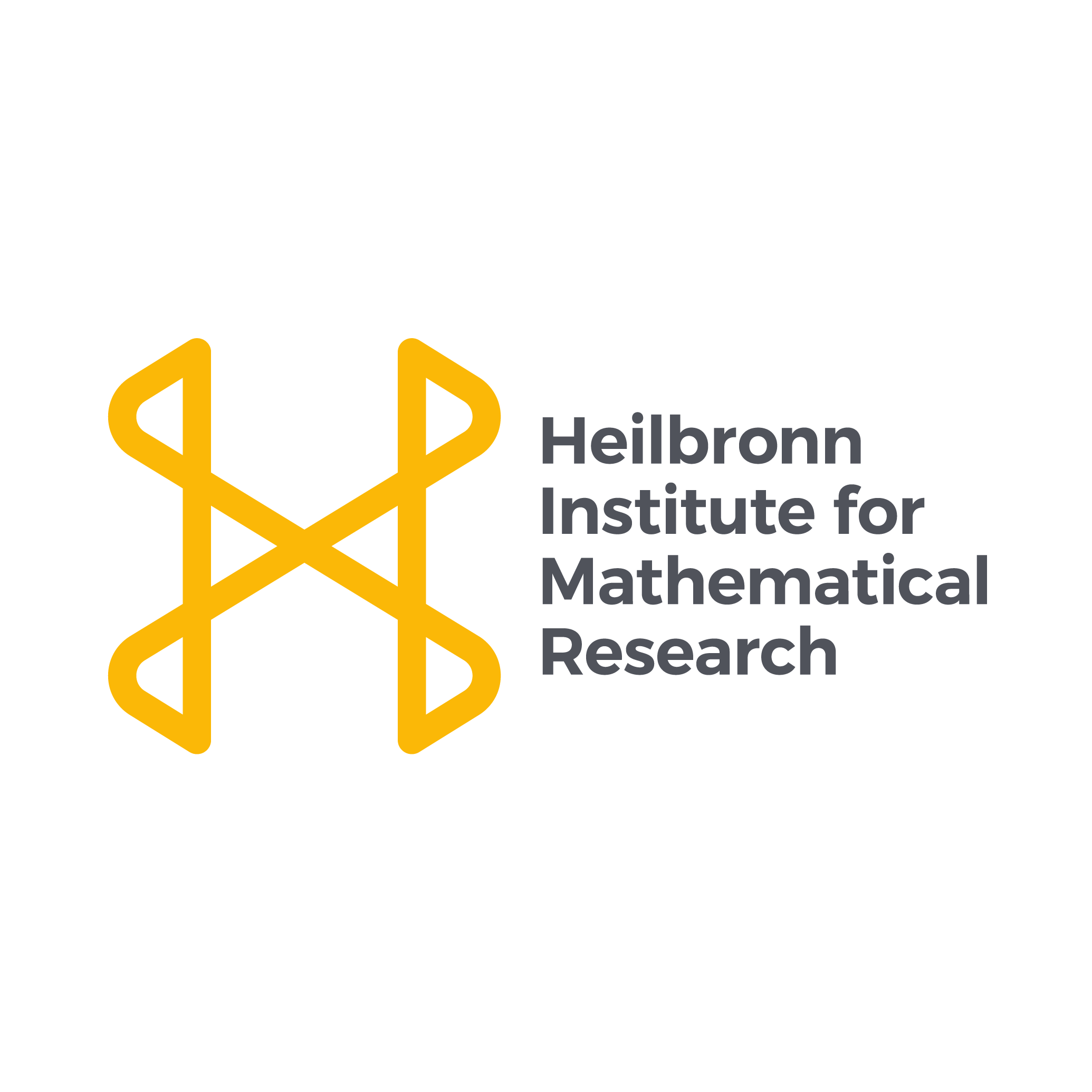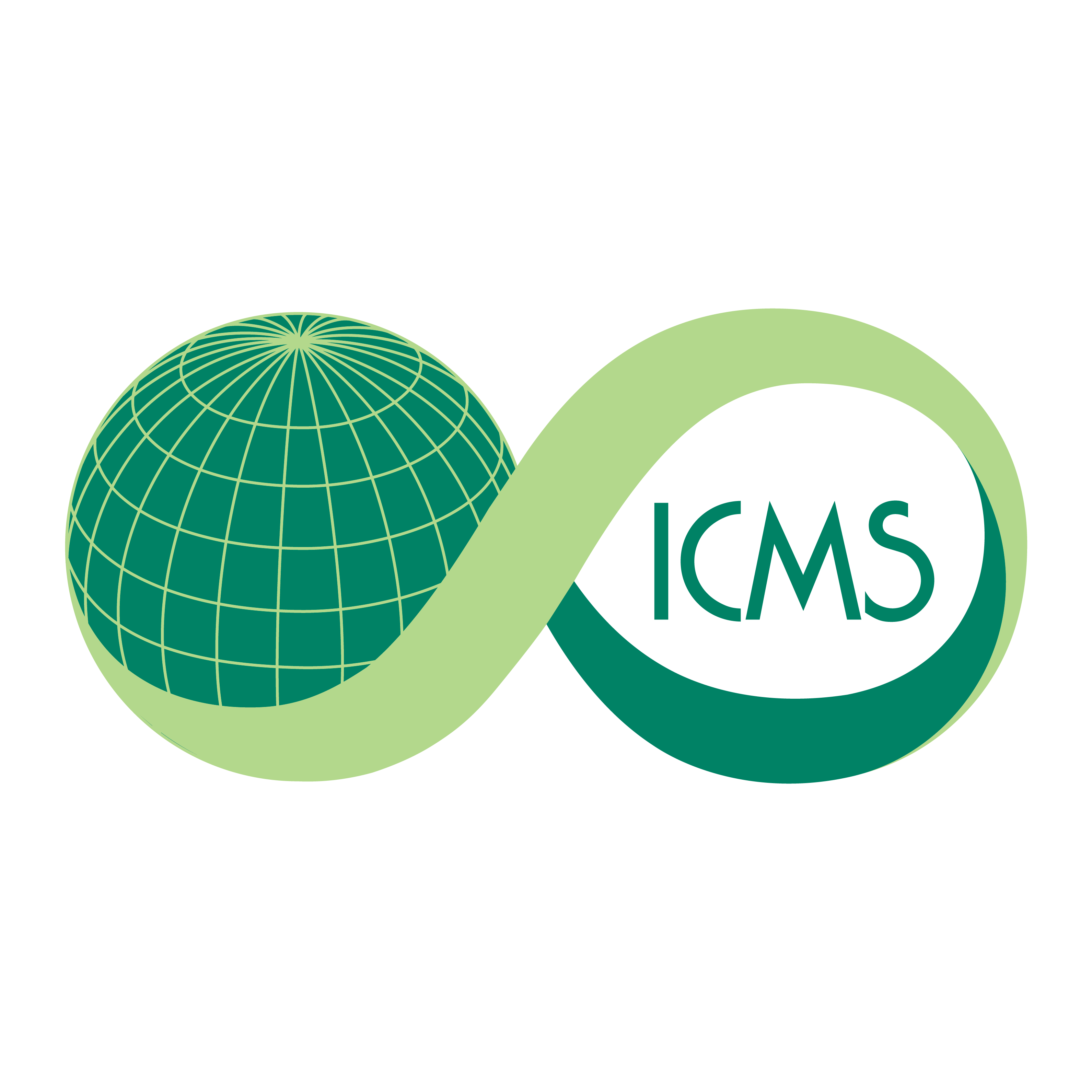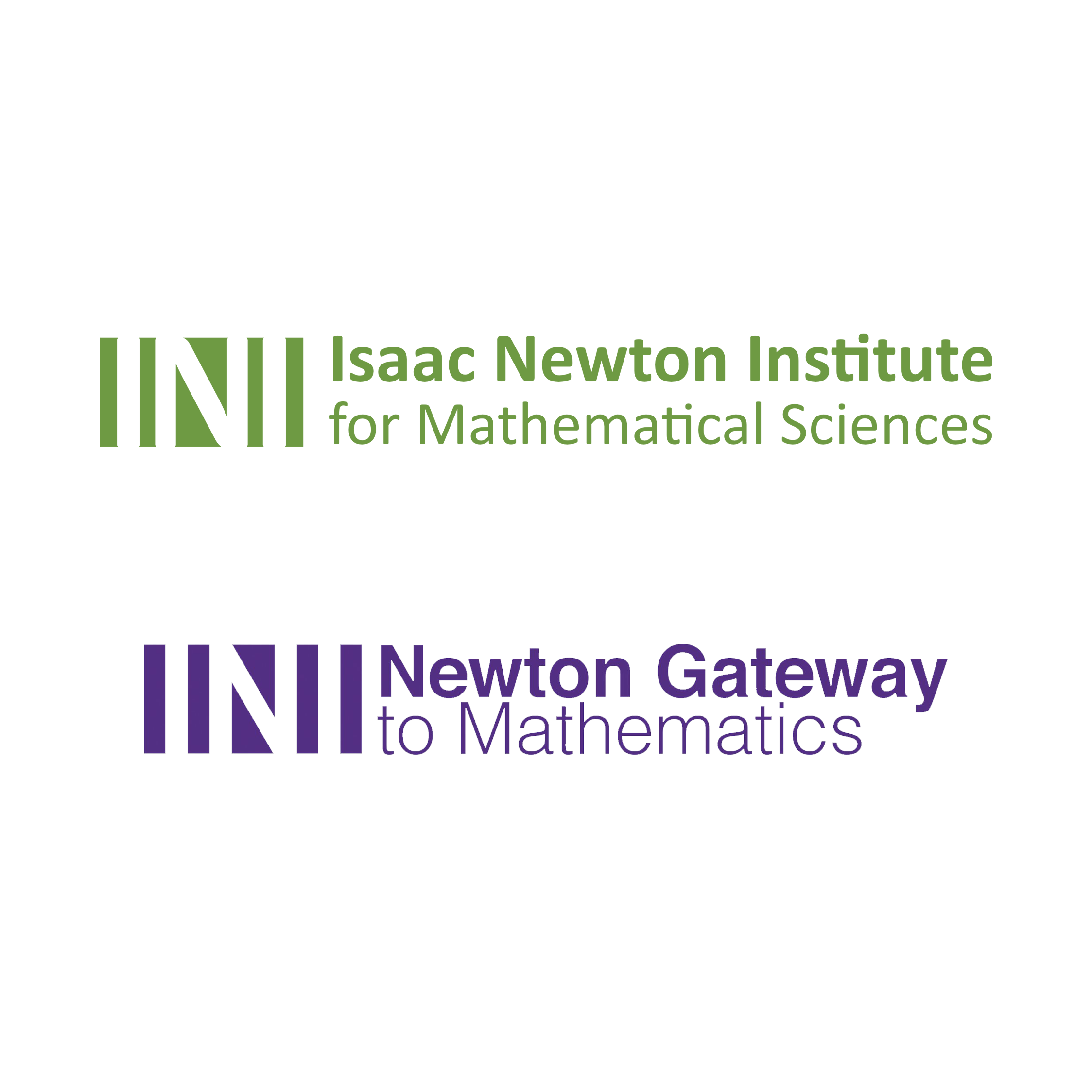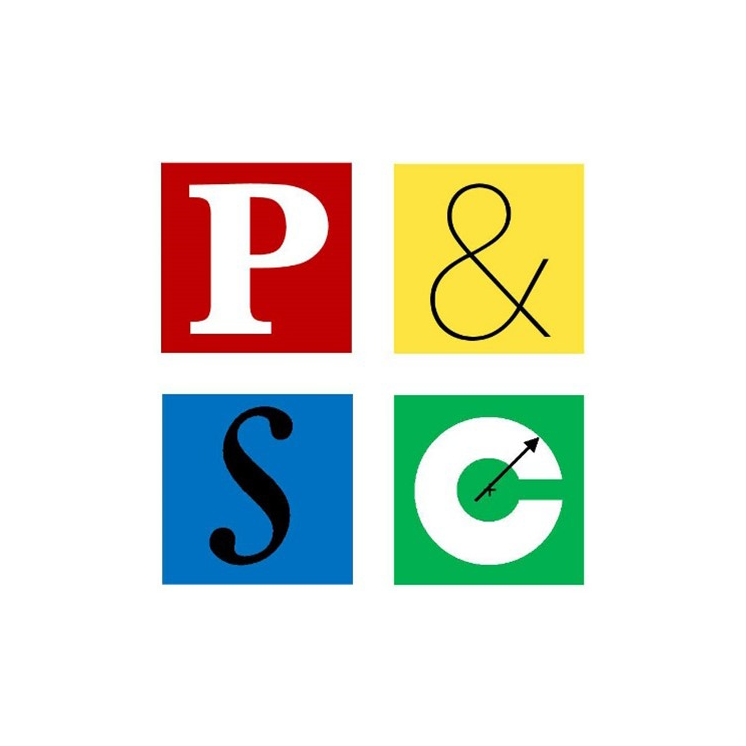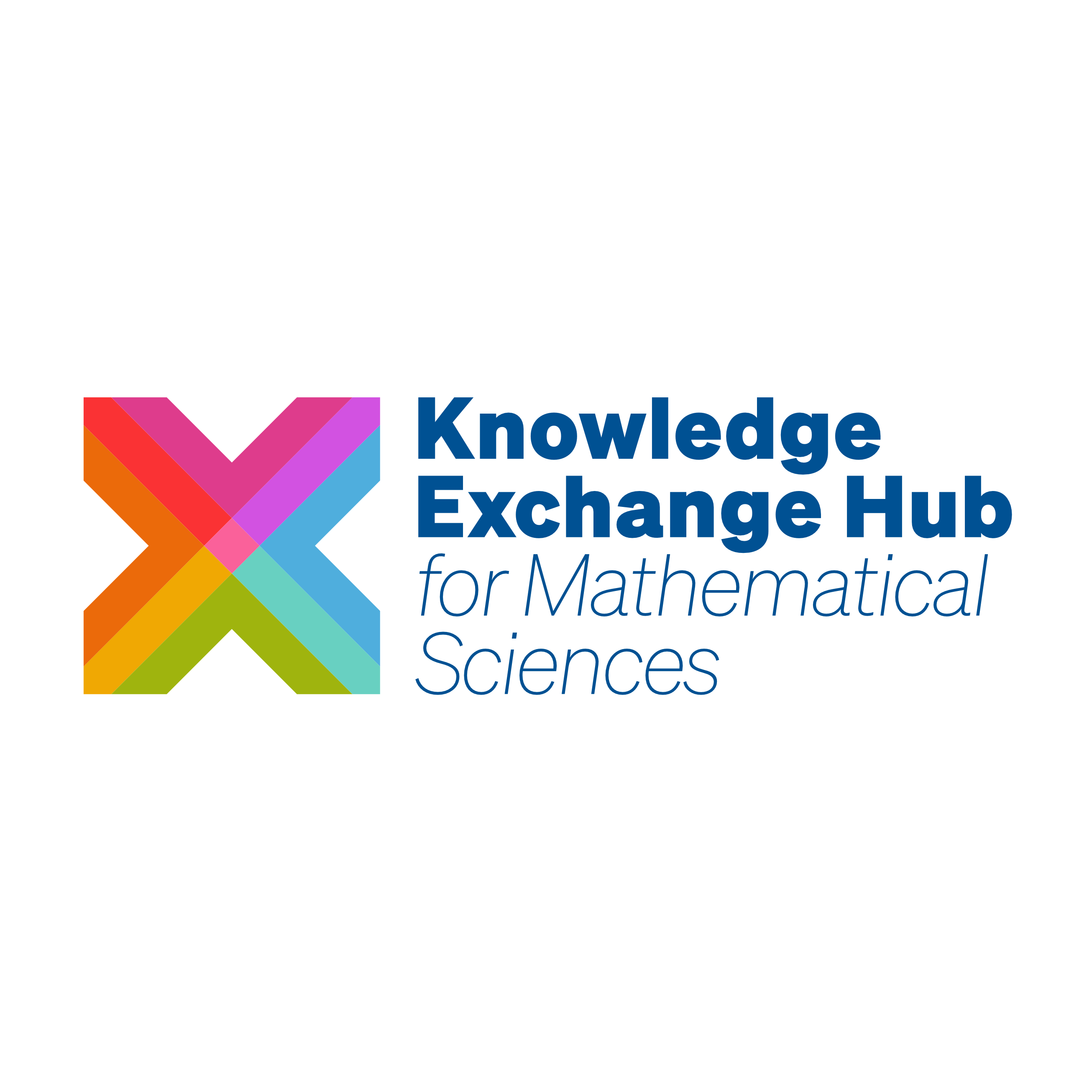
Exhibitors

Exhibitors
The Maths Summit will feature a number of exhibition stands to further showcase the fundamental role maths plays in all aspects of life. We’re delighted to welcome exhibitors from:
-
Isaac Newton Institute and Newton Gateway to Mathematics
-
The Academy for the Mathematical Sciences
-
UK Knowledge Exchange Hub for Mathematical Sciences
-
The Heilbronn Institute for Mathematical Research
-
Mathematics for Deep Learning
-
The Parliamentary and Scientific Committee
-
The International Centre for Mathematical Sciences
-
Brainspark Games
Attendees will be able to enjoy the exhibition stands throughout the day and take part in interactive activities including mathematical artwork, educational gaming as well as speaking to leading stakeholders from the mathematical community.
The Academy for the Mathematical Sciences (AcadMathSc) is currently in a "proto-Academy" setup phase. The full Academy will be an authoritative and persuasive voice for the whole of the mathematical sciences. We will work together to develop, communicate, teach and use the power of the mathematical sciences to benefit our world. This includes teaching and education, academic research pushing the frontiers of what is known, and the implementation of the mathematical sciences in practice. The Academy will be dedicated to supporting the advancement of the field ensuring that it delivers on its potential to enrich our world, by nurturing the people pipeline, and increasing societal engagement and recognition of the value, and indeed beauty, of mathematics. We know that the mathematical sciences improve lives, help people, help society, and improve the economy and productivity.
We welcome the announcement that the government will support the creation of a National Academy focussed on the mathematical sciences and we look forward to arguing that AcadMathSci is uniquely well-placed to achieve the goals that DSIT and the community have set out, and should be chosen as the new National Academy for the mathematical sciences.
Brainspark Games
Multi-award winning EdTech Gaming Studio, Brainspark Games is building an eduverse of free, inclusive, AI-powered, Augmented-Reality educational mobile games, aligned with the curriculum. Pioneering neurogames technology, we condense 12-weeks term-time learning into a few hours of fun-fast gameplay. Having playtested with 1,850 children/educators, we’ve had 71k downloads, globally!
Featured in the UK Prime Minister’s ‘Council for Science & Technology’ R&D report as an impactful games studio in the education sector, Brainspark Games has been awarded 6xInnovate-UK grants, won AWE Top European XR Tech ’Startup To Watch Auggie Award 2023’, featured in HolonIQ’s ‘Europe’s EdTech 200’ and ASU+GSV Cup Elite200.
Brainspark Games uniquely offers;
-
All the subjects from the national curriculum
-
Climate and other skills based educational games
-
Fact-checked culturally inclusive curriculum
-
Multi-language designed for regional localisation
-
Educational content delivered through a unique visual design language
-
AI-powered user personalization and AI-games engine
-
Interactive Augmented-Reality immersive games
-
Neurogames technology to engage diverse learners
-
GCSE games!
Find out more at www.brainsparkgames.com
The Heilbronn Institute for Mathematical Research
The Heilbronn Institute for Mathematical Research (HIMR) is a strategic partnership between GCHQ and UK universities within which academic mathematicians contribute to problems of national security. It has facilities in Bristol, London and Manchester.
HIMR brings pure mathematics to bear on problems of crucial importance to GCHQ’s twin intelligence and cybersecurity missions, thereby helping to protect the United Kingdom and its citizens.
Part of the mission of HIMR is to support pure mathematics across the UK, and it does so in a variety of ways, including: the employment of fellows (who are encouraged to spend half of their time on publishable research), the development of a mathematical community with expertise in security and coding, and the provision of grants for mathematical events, outreach activities, and research activities.
At any one time the Heilbronn Institute typically has over 50 members. These range from extremely distinguished senior visiting academics to postdoctoral researchers holding Heilbronn Research Fellowships. Since it was established, in 2005, over 200 mathematicians have been members of the Institute, including over 90 Research Fellows.
The International Centre for Mathematical Sciences
The International Centre for Mathematical Sciences (ICMS) In Edinburgh provides a venue and support for diverse international workshops in all areas of the mathematical sciences. For over thirty years we have been working with people from all over the world, creating international networks of mathematicians. We provide time and space for large and small groups to gather and think together, making connections that might not have been possible otherwise.
ICMS has a wide range of programmes and opportunities for funding to support the development of the mathematical sciences.
Launched in 2023 we have a new stream called Mathematics for Humanity. These activities are devoted to education, research, and scholarly exchange with the potential for direct relevance to the betterment of humanity. Please visit our webpages for more information: https://www.icms.org.uk/funding-opportunities/mathematics-humanity
We have an extensive knowledge exchange programme, bringing together academia, industry, and wider communities to maximise the impact of research.
We are delighted to have our Visiting Arts Fellow Yembe Tam join us to showcase her work at The Maths Summit.
ICMS receives its funding primarily from the Engineering and Physical Sciences Research Council
Isaac Newton Institute and Newton Gateway to Mathematics
The Isaac Newton Institute for Mathematical Sciences (INI) is a world-leading international visitor research institute based in Cambridge. It specialises in long-term thematic residential programmes that bring together researchers from across the full breadth of the mathematical sciences as well as other collaborative disciplines. It attracts leading mathematical scientists from the UK and overseas to interact in research over an extended period. During each scientific programme new collaborations are made, and methodology, knowledge and ideas are exchanged and catalysed through lectures, seminars and informal interaction. INI is committed to promoting and communicating research mathematics broadly, supporting knowledge exchange, fostering the next generation of mathematical scientists, and creating an inclusive and diverse research environment.
The Newton Gateway to Mathematics is the impact initiative of INI and acts as a vehicle for knowledge exchange between the mathematical sciences and potential users of mathematics, including industry, government and other academic disciplines, both in the UK and internationally. It does this by making links and facilitating interactions and activities such as programmes of work, research and training events, as well as bespoke projects.
Mathematics for Deep Learning
Mathematics for Deep Learning (Maths4DL), is a 5 year, £3.5 million EPSRC Programme Grant, run jointly between the universities of Bath, Cambridge and University College London. Deep learning is a form of machine learning that uses vast volumes of data and complex algorithms to train a model to perform a task, allowing a system to automatically learn and improve from experience. It lies at the heart of Artificial Intelligence with many applications, from playing Go to medical imaging, and from generating and image to forecasting the weather. The aim of the Maths4DL grant is to put deep learning onto a firm mathematical basis by combining theory, modelling, data, and computation to unlock the next generation of Artificial Intelligence.
At all three institutions, we have researchers addressing the theoretical development of deep learning (so it is explainable) and algorithmic development (so it is trustworthy). We are also looking at how deep learning is used in the real world such as in weather forecasting, medical imaging, energy and telecommunications through our partnerships with industry. Also important to success of the grant is our outreach and public engagement work and our opportunities to engage with policy makers. Our stand will demonstrate how mathematics has been fundamental, not only in the early development of AI, but remains a crucial part of AI innovation.
The Parliamentary and Scientific Committee APPG
The Parliamentary and Scientific Committee (P&SC), established in 1939, is Parliament’s first All-Party Parliamentary Group.
It brings STEM and Parliament together, demonstrating the relevance of scientific and technological developments to matters of public interest and to the development of national policy. Our Chairman is Stephen Metcalfe MP, a Member of the House of Commons Science, Innovation, and Technology Select Committee, and a former Chairman. His fellow Officers are Viscount Stansgate (Dr Stephen Benn FRSB), President, Chi Onwurah MP, Vice Chair and Carol Monaghan MP, Hon.Secretary.
Main Activities:
P&SC holds 6-8 topical sponsored Discussion Meetings per year which take place in the Houses of Parliament
Networking and Chairman’s Dinners in Parliament to facilitate in-depth dialogue between scientists and parliamentarians.
We publish a quarterly journal, Science in Parliament, which is distributed to all MPs and Peers and 200 subscribing members of P&SC, including the Learned Societies, scientific and technical organisations, STEM businesses amd over 40 UK Universities.
STEM for BRITAIN – an annual poster competition for Early Career Researchers, now in its 27th year, with the finals held in the Houses of Parliament attended by over 80 parliamentarians.
Annual Luncheon with a high-profile speaker held on the terrace of the House of Lords.
For further details please contact: karen@scienceinparliament.org.uk
The UK Knowledge Exchange Hub for Mathematical Sciences
The UK Knowledge Exchange Hub for Mathematical Sciences (KE Hub) is part of the UK’s national Mathematical Sciences infrastructure and exists to promote, facilitate, and support knowledge exchange activities between Academia and Business, Industry, & Government.
The primary aims of KE Hub are to:
-
Massively scale up KE activity in the UK, leveraging the experience of the mathematical science national infrastructure.
-
Connect by drawing together researchers, practitioners, end-users and professionals into Forums which interface with the various activities
-
Support existing KE activity in the community whilst growing the network by nurturing untapped pools of researchers, practitioners, and end-users.
-
Deliver activities through linked projects overseen by the executive team
-
Coordinate support for mathematical science KE projects from beginning to end.
Our vision is to be an appropriately resourced, outward-facing, inclusive organisation so that the best country-wide well-trained mathematical sciences talent can be brought to bear on challenges arising in business, industry, and government for the mutual benefit of all parties.
The KE Hub offers seed funding for some KE activities, opportunities to engage with business, government and industry and provides easy-to-access signposting of opportunities to engage in KE activities, in order to benefit Mathematical Sciences across the UK.

Professor Rachel Bearon
Professor Rachel Bearon is Executive Dean of the Faculty of Faculty of Natural, Mathematical & Engineering Sciences and Professor of Mathematical Biology at King’s College London. Prior to this she was Head of the Department of Mathematical Sciences at the University of Liverpool. Her research concerns the spatial and temporal dynamics of biological systems, ranging from bacterial chemotaxis, cancer cell motility and phytoplankton in turbulence, to modelling cell-signalling pathways, intracellular protein dynamics and drug transport. Rachel is a Fellow of the Institute of Mathematics and its Applications and has been on its Council (2017-2023). She is a founding trustee of the Academy for Mathematical Sciences and serves on the Exec Committee for its set-up phase.

Dr Jessica Enright
Dr Enright is a senior lecturer at the University of Glasgow. Her research interests include the mathematics of networks and games, and she is particularly interested in applications in infectious disease, contagion processes, and epidemiological and economic systems. She is the general secretary of the Edinburgh Mathematical Society, a Member-at-Large of the London Mathematical Society’s Council, and on the management board of the Virtual Forum for Knowledge Exchange in Mathematical Sciences.

Dr Howard P. Haughton
Dr Howard P. Haughton is a widely recognised expert in quantitative financial risk and works as a consultant in this field. He holds a PhD in Mathematical Computer Science and has held senior roles in risk and capital markets at notable institutions, including Deutsche Bank and Merrill Lynch. Notably, he's served as Chief Risk Officer and co-Head of Treasury at a Building Society, where he established the organisation's Risk and Treasury management policy and departments. He's also held executive positions at a leading brokerage firm in the Caribbean.
Dr Haughton serves on the Board of the Institute of Mathematics and Its Applications (IMA), is a member of its Professional Affairs Committee and is the EDI champion for the IMA. He is also on the advisory board of the Academy for the Mathematical Sciences. He is a visiting senior research fellow at King’s College London conducting research across multidisciplinary subjects including quantitative finance, artificial intelligence, formal aspects of computer science and mathematical modelling of social issues including EDI.

Professor Catherine Hobbs
Professor Catherine Hobbs CMath FIMA is Chair of the Heilbronn Institute for Mathematical Sciences, University of Bristol. As Chair of the research Institute, she works with the mathematics community and Government to apply mathematical knowledge and skills to real life problems as well as nurturing the mathematical sciences pipeline from schools through to high level research.
Catherine is also currently Vice President of the London Mathematical Society and Honorary Secretary (Education) of the Institute of Mathematics and its Applications. She is on the Executive Committee of the proto-Academy for the Mathematical Sciences, where she leads on Policy.

Professor Terry Lyons
Professor Terry Lyons is the Wallis Professor Emeritus and Professor of Mathematics at the University of Oxford. He is currently PI of the DataSıg program (primarily funded by EPSRC), and of the complementary research programme CIMDA-Oxford. He was a founding member, and then Director (2011-2015) of, the Oxford Man Institute of Quantitative Finance; he was the Director of the Wales Institute of Mathematical and Computational Sciences (WIMCS; 2008-2011). He came to Oxford in 2000 having previously been Professor of Mathematics at Imperial College London (1993-2000), and before that he held the Colin Maclaurin Chair at Edinburgh (1985-93).

Dr Richard Pinch
Richard is a retired civil servant, whose career has been divided between academic research in pure mathematics and its application to cybersecurity. He was the founding head of research at the Heilbronn Institute, and has served on advisory boards at EPSRC, NGM, INI, ICMS and on the REF. He has also served as Vice-President (Professional Affairs and Industry) at the IMA. He continues mathematical research as a consultant.

Dr Richard Pinch
Richard is a retired civil servant, whose career has been divided between academic research in pure mathematics and its application to cybersecurity. He was the founding head of research at the Heilbronn Institute, and has served on advisory boards at EPSRC, NGM, INI, ICMS and on the REF. He has also served as Vice-President (Professional Affairs and Industry) at the IMA. He continues mathematical research as a consultant.

